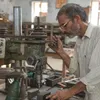10 homegrown brands to watch out for in 2022
As 2021 comes to an end, SMBStory lists 10 homegrown brands that proved their resilience during the second wave of COVID-19 and are expected to thrive in the year 2022.
The year 2021 will stand out in history as one of the unforgettable years when the MSME (micro, small and medium enterprises) ecosystem fought tooth and nail to survive the second wave of the coronavirus pandemic.
While the year started with us celebrating a battle we believed we had almost won, the year is ending with some profound learnings, a changed perspective of the ecosystem stakeholders and memories that will not be forgotten.
Now, as we draw the curtains on this year, SMBStory lists 10 homegrown brands that proved their resilience during the second wave and are ready to face 2022.
The list has been curated keeping in mind several factors — innovation, competition, resilience and grit of the founders, impact on society, growth metrics and more.
Sid’s Farm
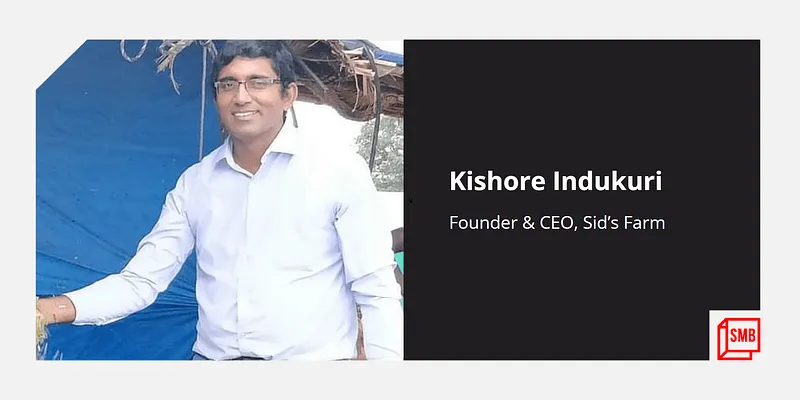
After engineer Kishore Indukuri quit his job at Intel in the US and returned to India, he realised there were limited options for affordable and unadulterated milk. This inspired him to bring a change not only for his son and family, but also for the people of Hyderabad.
Kishore decided to start his own dairy farm and milk brand, and bought 20 cows from Coimbatore and set up a dairy farm in Hyderabad in 2012. Kishore started supplying milk directly to consumers in the city on a subscription basis, and his business began to grow.
In 2016, the brand was officially registered as (named after Kishore’s son Siddharth). Now, the 120-employee brand delivers milk to over 10,000 customers daily, and achieved Rs 44 crore turnover last year, Kishore claims.
Its product portfolio also includes cow’s and ghee, buffalo’s butter and ghee, cow’s curd, buffalo’s curd, and natural paneer.
SMBStory’s take-
Staying true and close to his agricultural roots, Kishore Indukuri’s phenomenal efforts to give back to the society is what got him on this list.
Lagnam Spintex
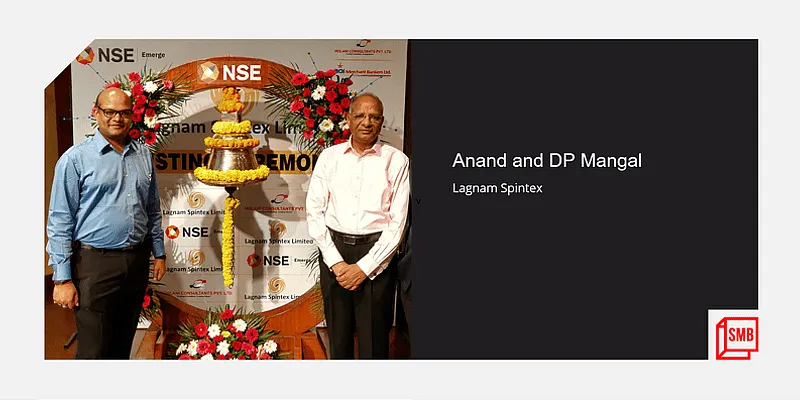
The goal of retirement is to live an easy, slow, and peaceful life, but the case was entirely different for entrepreneur Dwarka Prasad Mangal.
In 2010, Mangal, who was 62 years old then, retired. However, he was bursting with energy, and wanted to do something at a large scale.
This is when he decided to give entrepreneurship a shot. Having worked in the textile industry for several years, Mangal decided to zero in on this industry to debut into the business market. This is how the cotton yarn manufacturer, , came into existence.
In 2010, he shifted his base from Delhi to Bhilwara, Rajasthan to set up a unit to manufacture ring yarn and open-end yarn. A total of Rs 31 crore was invested to start the business, and according to Mangal, he contributed about 30 percent of the amount, and the rest was financed by a bank.
The commercial production began in 2012 with 960 open-end rotors. The company clocked Rs 35 crore that year. They also started exporting to Europe from 2013 onwards and expanded to other countries. Today, 55 percent of the production is exported to countries such as Italy, Turkey, Portugal, Columbia, China, Bangladesh and more. At present, Lagnam is producing 35 tonnes of yarn every day.
SMBStory’s take-
At the age of 62, DP Mangal redefined retirement by diving into entrepreneurship and building a profitable business that also got listed on National Stock Exchange’s SME platform eight years later.
TABP Snacks and Beverages

Prabhu Gandhikumar was working as a consultant in the US for many years before he moved back to India in 2012 to join his family business of manufacturing metal castings in Coimbatore. He, however, felt a deep sense of dissatisfaction.
In 2016, he explored various sectors he could venture into, and beverages seemed like a good option. He realised that daily wage earners yearned for carbonated drinks that were affordable and tasty, especially during summer months like April, May, and June.
Moreover, according to several data reports, a daily wage worker, on average, earns between Rs 9,000-10,000 a month. Sometimes, even less.
Prabhu says he found a real gap in the market. And so, Prabhu and his wife, Brindha Vijayakumar, launched Tanvi Foods, focusing only on beverages, in 2016 with two flavours — mango and apple juice priced at Rs 10.
There was no looking back since, and the company later got converted into TABP Snacks and Beverages in 2018. According to the numbers shared by Prabhu, TABP has grown from clocking Rs 92 lakh in FY17 to Rs 35.5 crore in FY21.
SMBStory’s take-
Entrepreneurship is all about identifying gaps and then solving them with innovative solutions. TABP Snacks found a gap in the hinterland markets and scaled up the business by serving Tier II and Tier III cities.
Tulja Tooling
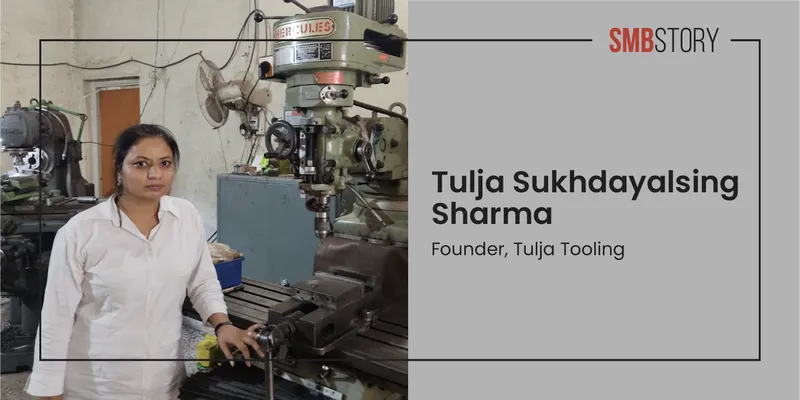
Tulja Sukhdayalsing Sharma aka Rani Tulja has a small workshop in Aurangabad under the name of Tulja
Tooling in the machine tools business which she started in 2017.
However, her well-laid-out plans went awry due to domestic violence. She lost the business for nearly four years, which she had set up with her own money, to her estranged husband.
Yet, today, she stands tall. Rani restarted her business in 2020 during the pandemic with some money borrowed from her supportive parents and pawning her gold.
She has not only found a firm footing in her area of expertise but has expanded the market of her products to neighbouring Kolhapur, Nagpur, and other states like Gujarat and Punjab. Today, she has five machines, including a milling machine, lathe machine, and drill machine, and employs two workers.
She does the design, technical work, and marketing herself, and made a modest sum of Rs 24 lakh last year.
SMBStory’s take-
Being one of the few women who chose to set up her own tooling workshop rather than work in another establishment, soft-spoken Rani Tulja stands out in this macho landscape of machines and tools.
Nandani Creation (Jaipurkurti)
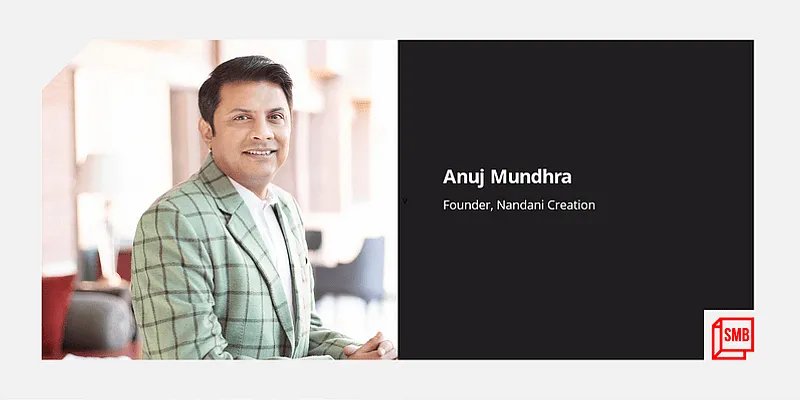
In 2003, Anuj Mundhra started a business of trading salwar-suit pieces in Jaipur. He would purchase suit sets in bulk and sell them to vendors and shopkeepers. When he started earning some income, Anuj opened his own block and screen printing units in Jaipur.
Around 2012, Anuj visited Delhi and saw huge hoardings of ecommerce marketplaces Jabong and Snapdeal.
He felt a moment of epiphany and realised that ecommerce is going to be the next big thing and the future of shopping in India.
He returned to Jaipur and launched . in 2012 and branded the ecommerce offshoot as Jaipurkurti.com.
The company today manufactures and sells suits, kurtis, fusion wear, bottom wear, and a host of other apparel items. The B2C company even exports to countries such as the UK, the US, Australia, Malaysia, and a few others. The company also got listed on the National Stock Exchange (NSE) Emerge, a platform under NSE for startups and mid-sized companies to get listed on, in 2016.
SMBStory’s take-
From earning Rs1,400 a month to building a NSE-listed company, Anuj Mundhra’s story of scaling up an ecommerce platform and offline business is hard to miss.
ARIS BioEnergy
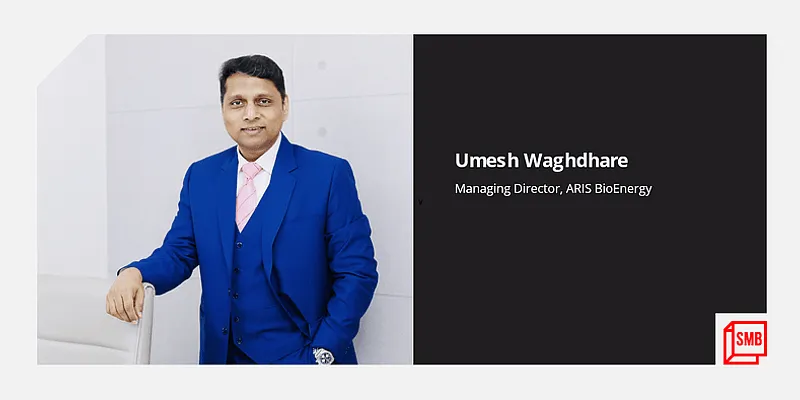
Did you know that the oil used by your local restaurants is extremely harmful to your health? Moreover, there is a guideline in place regarding used cooking oil, which is often flouted by the owners of these eateries.
But how many companies and businesses are adhering to this norm? Not many, says entrepreneur and Founder of Mumbai-based ARIS BioEnergy, Umesh Waghdhare. In addition, he highlights that if the used cooking oil (UCO) is not reused, it is often drained out in water bodies, which harms the environment enormously.
He set up in Mumbai in January 2019 to start the aggregation process. It tied up with local eating joints in and around Mumbai to buy used cooking oil. It then sells it to refineries who are enrolled with FSSAI to process it into biodiesel.
Today, 27,000 outlets and eateries are part of the aggregation network. This year ARIS is also planning to set up a refinery where the used cooking oil can be converted into biofuel.
SMBStory’s take-
ARIS BioEnergy is a pioneer with hardly any private competitors in the segment.
KDM India
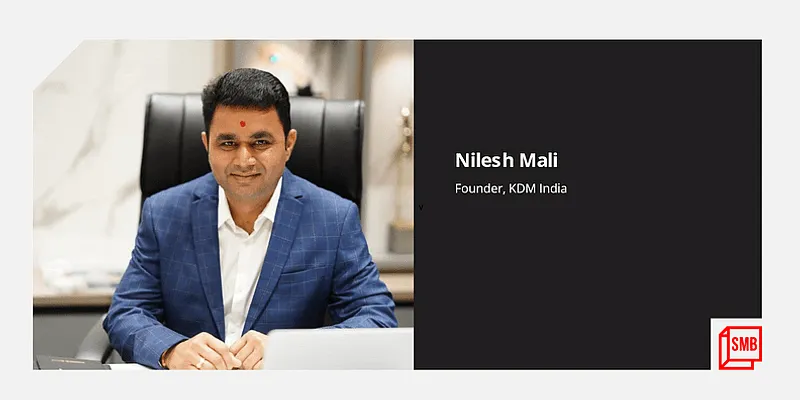
Nilesh Mali started his first job at the age of 18 when he moved to Mumbai from Jalore, a district in Rajasthan famous for the Marwari horse breed. With dreams of achieving something big in his life, Nilesh took up odd jobs in retail shops in the early 2000s. He then moved to other electronic goods such as selling walkmans and radio.
Almost two decades later, Nilesh is running a company with an annual turnover of Rs 30 crore. According to the founder, KDM, founded in 2011, gives a lifestyle choice to people living in Tier II and III cities.
manufactures affordable mobile chargers, earphones, speakers, neck bands, among others.
KDM India now makes 200 SKUs (stock-keeping units) and has a distribution network pan India.
SMBStory’s take-
Nilesh found a gap in the hot selling mobile accessories market. Moreover, he went a step ahead to take this trend deeper into the Tier II and III cities.
Amrutam

Founded in 2006, is ayurvedic health and personal care brand that was running into losses until 2016. Its founder, Ashok Gupta, who was working as a distributor for various pharma companies was finding it hard to keep the business afloat until his children Agnim Gupta and Stuti Gupta decided to step in.
What restarted in August 2017 by getting one order a month has now grown to be receiving 4,000 orders per month, with a revenue of more than Rs 2 crore. The company also claims to have witnessed a 250 percent jump in revenue in FY21.
Agnim and Stuti revamped Amrutam and rebranded its products. From supplying herbal medicines to medical stores and doctors, Amrutam started selling premium personal as well as healthcare OTC products online, through their website, and directly to the consumers (D2C). They also repackaged the products and labelled them differently.
The brand has around 1,000 SKUs, and Stuti claims it differentiates from its competitors in the healthcare category by offering ayurvedic malts.
SMBStory’s take-
Personal care and healthcare saw a boom especially during the COVID-19 pandemic. Amrutum leveraged this boom to grow 250 percent in FY21.
Insight Cosmetics
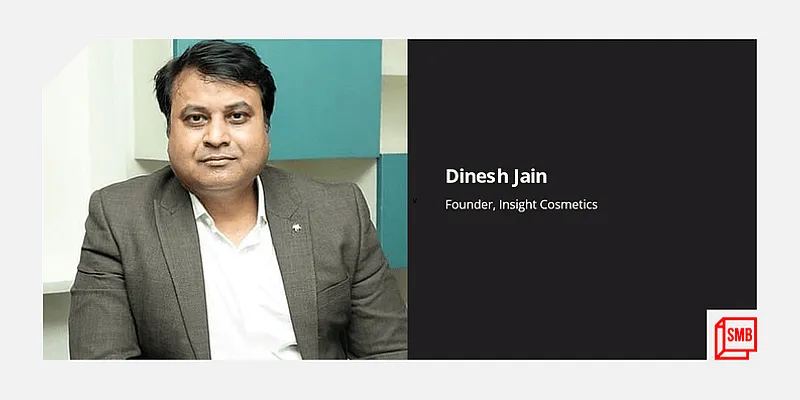
Dinesh Jain was just a child when his father Bastimal Jain started a small cosmetic manufacturing unit making products like sindoor, nail polish, talcum powder, etc. in the late 1970s.
Dinesh often visited the unit after school, keenly observing the daily operations. And many years later, in the late 80s, he got involved in the business full time.
Now, over 35 years later, the small manufacturing unit has scaled up to become , a makeup brand for the masses with more than 350 SKUs of colour cosmetics — nail polish, lipstick, mascara, eyeliners, eyeshadows, foundations, concealers, lip gloss, highlighter, and more and a presence in over 7,500 stores pan India. Dinesh’s aim has been to make the brand accessible to the masses.
According to Dinesh, for a product to be pocket-friendly, its sources need to be local.
“To reduce costs, we did backward integration and set up an in-house packaging unit. Usually, brands outsource packaging locally or import packaging that adds up to the cost of the final product. We reversed this, and so our price remains competitive always. We have very limited products that go beyond Rs 295 without compromising on quality,” he adds.
Dinesh also believes that while getting into large format stores lends to scale, it also piles up costs.
He says he has never visualised Insight Cosmetics owning standalone big stores, and would rather work in a multi-brand outlet format.
SMBStory’s take-
Insight Cosmetics has made a mark in the Indian market with its products that intersect affordability and quality.
EKKI Pumps
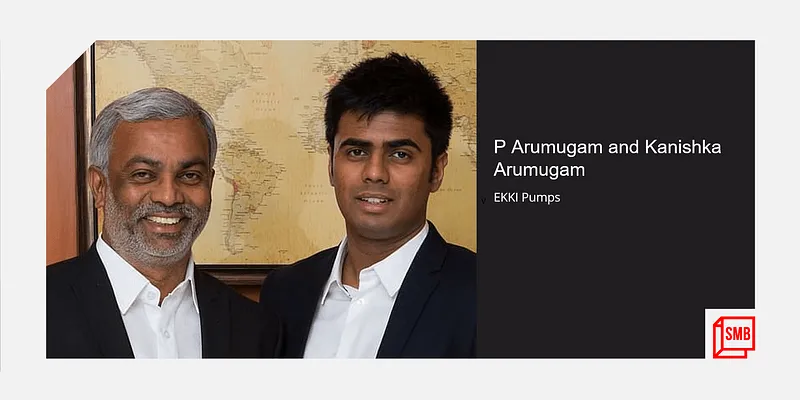
In 1980, P Arumugam, who hails from Kottur, a small village in Tamil Nadu, moved to Coimbatore to pursue his higher studies. After he completed his studies, Arumugam’s uncle, KK Veluchamy, suggested he open a shop selling spare parts for pumps, and in 1981, the duo and their friend, MS Sundaram, launched Deccan Pumps.
The pump manufacturing company began its journey as a small workshop with only nine workers, manufacturing submersible pumps for farmers. Gradually, the small group diversified into manufacturing other products such as jet pumps, submersible motors, centrifugal monoblocs, borehole submersibles etc.
The company also underwent several changes as Arumugam acquired the group completely and became the sole owner, which paved the way for a larger holdings company called , which comprises four companies: Deccan Pumps, Deccan Enterprises, EKKI HOMA and EKKI Pumps.
SMBStory’s take-
Today, the company has evolved from being just a pump manufacturer to a water technology company. Moreover, EKKI is on a mission towards providing clean drinking water and sanitation.
Edited by Affirunisa Kankudti





